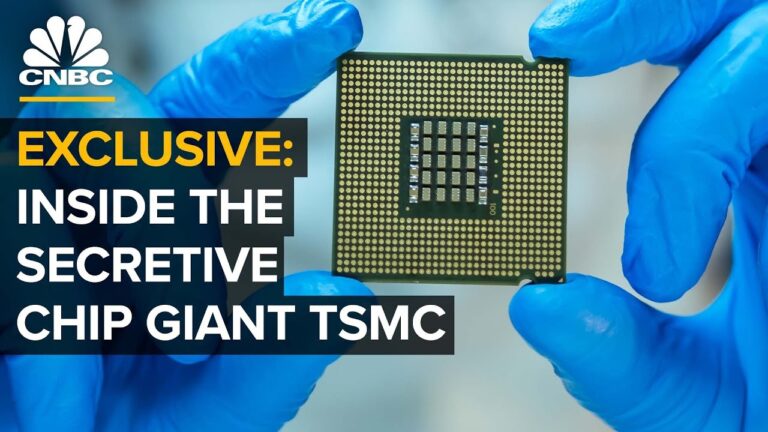Public Facts on The 2020–Present Global Chip Shortage
It is an ongoing global crisis in which the demand for integrated circuits (commonly known as semiconductor chips) exceeds the supply, affecting more than 169 industries. The crisis has led to major price increases, shortages queues and scalping among consumers for automobiles, graphics cards, video game consoles, computers, and other products that require semiconductors.
Causes of the Global Chip Shortage
The global chip crisis is due to a combination of different events with the snowball effect of the COVID-19 pandemic being the primary reason for accelerating shortages. Strong demand for electronics, shifting business models in the semiconductor world that created a bottleneck among outsourced chip factories, and effects from the U.S. trade war with China, all these contributed to the Global Chip Shortage. Another contributing factor is that demand is so great that existing production capacity can’t keep up and the 2021 drought in Taiwan.
Watch the below CNBC Story to know more.
A chip shortage that started as consumers stocked up on personal computers and other electronics during the COVID-19 pandemic now threatens to snarl car production around the world. They join a long list of major automakers, including Ford, Honda and Fiat Chrysler, which have warned investors or slowed vehicle production because of the chip shortage.
But it’s not just the automotive industry that’s struggling to get enough semiconductors to build their products. AMD and Qualcomm, which sell chips to most of the top electronics firms, have noted the shortage in recent weeks. Sony blamed the chip shortage for why it’s so hard to get a PlayStation 5 game console.
CNBC Story
Despite the vast sums being invested, the semiconductor industry is still struggling to produce enough chips. Based on the CNBC Report, The world’s largest contract chipmaker, TSMC, has committed to investing $100 billion over three years to ramp up production. Rival Intel announced last March that it plans to spend $20 billion on two new chip plants in Arizona. In 2021, semiconductor companies worldwide spent $146 billion building new production capacity and on research, according to research firm Gartner. TSMC, Samsung and Intel — three of the world’s biggest chipmakers — accounted for 60% of the $146 billion.
Intel’s 20 Billion Dollar Investment to address Chip Shortage
We just can’t make enough chips to fulfil society’s gluttony for anything powered by semiconductors.Chips are used in everything from kettles and washing machines to headphones and fighter jet missile systems. Many products, such as cars, contain dozens of chips.
Some have speculated that there will be a “chip glut” once all the new fabs are churning out more chips, but O’Donnell disagrees.The human race is addicted to technology,” he said. Demand will continue to increase, not wane. In fact, I am skeptical that all this investment is actually enough
Glenn O’Donnell, Research director, Forrester, to CNBC
TSMC has come up with a 100 Billion Dollar Plan as the Industry grapples with the Chip Shortage
Taiwan Semiconductor Manufacturing Company may not be a household name, but with a market value of over $550 billion, it’s one of the world’s 10 most valuable companies.TSMC makes 24% of all the world’s chips, and 92% of the most advanced ones found in today’s iPhones, fighter jets and supercomputers. As the world grapples with an ongoing chip shortage, TSMC has committed to investing $100 billion over three years to ramp up production.
TSMC is building America’s first 5-nanometer fabrication plant, hoping to reverse a decades-long trend of the U.S. losing chip manufacturing to Asia. It is building a $12 billion factory in Phoenix, Arizona, and another in Japan to increase capacity. It has several other fabrication plants — also known as fabs — in development. The Fab, Arizona will start production in 2024. The company says it will produce 20,000 wafers each month.
These are parts that are going to be used in lots of different places: CPUs, GPUs, IPUs, etc. They’ll be used in smartphones. We’re low-key. We let our products speak for themselves. Their success brings all the business that we could ever hope for.
Rick Cassidy, TSMC Chief Strategy Officer, CEO of TSMC’s project in Arizona.
Samsung’s Investment in Chip Manufacturing to address the Chip Crisis
When it comes to the most advanced chips used in the latest iPhones, supercomputers and automotive AI, TSMC is responsible for 92% of production while Samsung is responsible for the other 8%, according to research group Capital Economics.
It’s become almost a monopoly at the leading edge, and all of those manufacturing operations, for the most part, are out of Taiwan, Hsinchu. That becomes a matter of national importance for the United States, but not only the United States, but the Western world
Christopher Rolland, Susquehanna’s Senior Semiconductor Analyst.
Learn More on Supply Chain
- The Ultimate Story on the Disruption of the Global Supply Chains
- The Bubble Tea Ingredient Shortage Explaining the Global Supply Chain Crisis
View, Read and Learn more here:
- Ecommerce
- Technology
- Supply Chain
- Artificial Intelligence
- Marketing Mix
- Business Learning Videos
- Retail Failure Stories
- Startup Failure Stories
- Travel Food Culture
- Retail Articles
- Customer Articles


